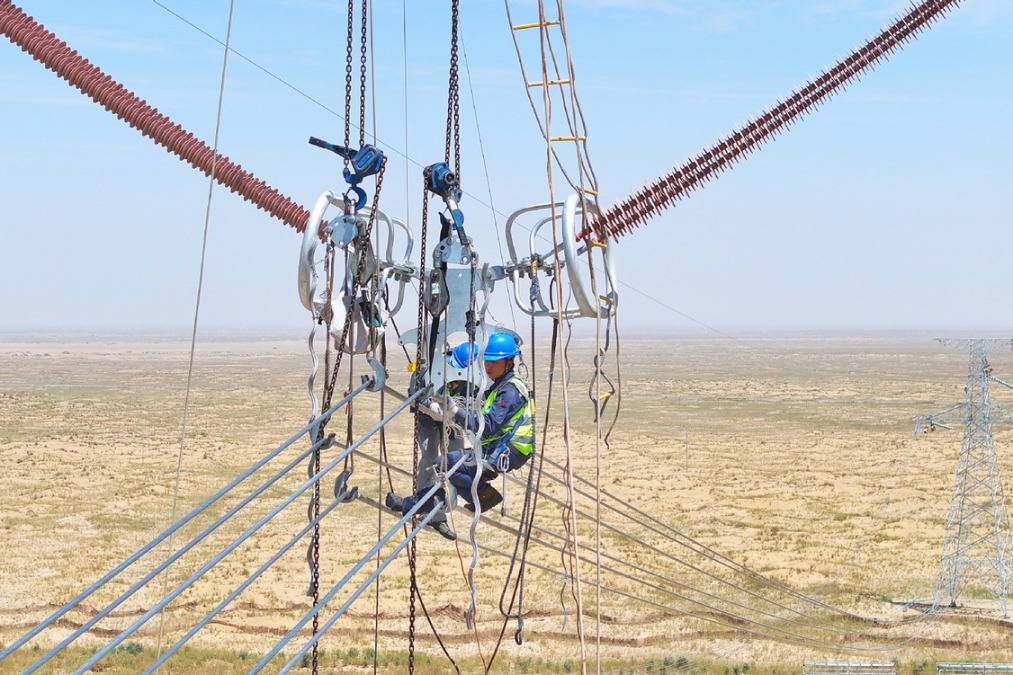China champions international ties in cutting-edge research

SHANGHAI -- Thanks to an ambitious international big science initiative led by Chinese scientists, the enduring enigma of how consciousness emerges in the brain has just gained a trailblazing new roadmap.
Last week, the renowned international journal Cell and its affiliated journals published a collection of 10 papers revealing groundbreaking results in the field of brain mapping, which detailed the intricate neural connections across species from reptiles and birds to rodents, non-human primates and humans.
This collaborative effort, involving over 300 scientists from China, France, Sweden and Britain, has significantly expanded the brain atlas, thus providing crucial insights into the neural networks governing perception, movement, learning, memory and decision-making.
The achievements arrived at a moment when China vigorously champions global scientific collaboration for the common good of humanity. From fundamental physics to deep-space exploration, marine habitability and life sciences, the country is now investing in and leading some frontier open science projects with international partnership as a key benchmark.
In Beijing's northern suburbs of Huairou, a comprehensive national science center has established 37 cutting-edge research facilities, 16 of them already open to global researchers. In 2024 alone, these facilities allocated an additional 430,000 hours of access time.
Among the global projects based in Huairou Science City is the International Meridian Circle Program, a flagship initiative spearheaded by China's scientific community to advance worldwide space-weather monitoring capabilities.
In June, during the second Belt and Road Conference on Science and Technology Exchange in the southwestern Chinese city of Chengdu, China reaffirmed its support for global projects like the Deep-time Digital Earth (DDE) and Ocean Negative Carbon Emission (ONCE) launched by Chinese scientists.
Lauded by the journal Science as the "geological Google," the DDE program is poised to unravel major scientific puzzles such as the global distribution of metal ore deposits.
ONCE plans to draft the first global ocean-sector carbon neutrality standard, which was passed unanimously by the International Organization for Standardization last November with worldwide support, signaling China's rising role in global climate agenda.
The "Global Hadal Trench Exploration Program" proposed by the Chinese Academy of Sciences (CAS) has been approved by the United Nations this year, opening a new chapter of global cooperation in trench scientific exploration.
Under this program, Chinese scientists and their counterparts from over 10 nations will jointly probe Earth's deepest, uncharted ocean trenches. To date, 145 scientists worldwide have completed 214 dives to the deepest points of nine global trenches, including the Mariana and Kermadec trenches. Exploring the abyss is considered essential to answering the origin of life, its fate and the future of humanity.
"Hadal exploration is within reach of only a few nations, while the 37 known trenches span the globe, making closer international cooperation essential," said CAS researcher Du Mengran.
China has also launched the π-HuB Project, uniting scientific teams from 18 countries to chart the vast diversity of human proteins and decode how our bodies truly function. It is the next grand endeavor in life sciences after the mapping of the human genome.
Robert Moritz, a professor at the Institute for Systems Biology in the United States, said that the project has the potential to reshape the entire field of proteomics.
China also engages the global scientific community through the Five-hundred-meter Aperture Spherical radio Telescope (FAST), the Large High Altitude Air Shower Observatory (LHAASO), its near-Earth space station, and a suite of lunar and deep-space exploration missions.
China's space authority has allocated a 200 kg payload on its Chang'e 8 lunar mission for international cooperation. Chang'e 7 will carry payloads from Egypt, Bahrain, Italy, Russia, Switzerland, Thailand and the International Lunar Observatory Association.
Last week, the International Deep Space Exploration Association, an international academic organization dedicated to deep space exploration, was officially launched in Hefei, capital of Anhui province in East China.
Looking ahead, China's brain-mapping team, in collaboration with international partners, is preparing to launch the International Primate Mesoscale Brain Atlas Consortium. After five to six years of groundwork by Chinese scientists, joint work with the international task force is expected to begin this September, aiming to chart an even more comprehensive map of the human brain.
"We call for sustained global scientific collaboration to collectively advance toward the rather ambitious goal of deciphering mesoscale brain atlases of primate brains, including the human brain," said Muming Poo, scientific director of the Center for Excellence in Brain Science and Intelligence Technology under the CAS.
"Scientists from more than 20 countries and nearly a hundred researchers so far have expressed their intention to join the consortium and work together," added Poo.
Shing-Tung Yau, a Fields Medalist from Tsinghua University, said at the opening of the International Congress of Basic Science on Sunday: "Enhancing international cooperation in science and fostering mutual exchange and trust is more crucial now than ever before."
- China champions international ties in cutting-edge research
- Macao SAR govt, liaison office of central govt firmly support decision of Legislative Assembly election commission
- Preliminary exam for highest Tibetan Buddhism degree held in Xizang
- Macao Legislative Assembly electoral commission determines candidate eligibility by law
- Dialogue key to inclusive human rights
- Extensive search for lost watch sparks debate





































